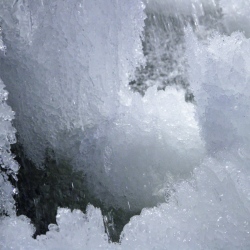
Last Friday, Sebastian Vivancos embarked on the journey of a lifetime: He was headed to Antarctica.
In Punta Arenas, Chile, Vivancos, a recent graduate of Columbia University, boarded the Laurence M. Gould, an icebreaker that would take him and others across the Drake Passage and to the National Science Foundation’s Palmer Station.
"The trip across was incredible," Vivancos wrote in an email. "The wind howls incessantly, the huge waves crash against the side of the ship rocking it back and forth."
Vivancos, who plans to start a doctoral program in the geosciences next year, was going to stay in Antarctica six months, while he and other scientists, part of the Palmer Station Long Term Ecological Research program, collected data on ocean chemistry and biology.
But on the day they arrived, he and other researchers were told they would have to turn around and go home.
"The station manager officially notified us that Palmer Station had been put on caretaker status since there was no official budget, which meant no money had been appropriated to conduct our research. Hence, there was no science to be done," Vivancos said.
The National Science Foundation announced Tuesday that it was putting its three Antarctic research bases in caretaker mode, with only skeleton crews remaining to maintain the stations.
Researchers at the station could hardly believe what they were hearing, Vivancos said. "This had never happened before — it not only affects our livelihood in economic terms but the driving purpose of these scientists’ lives."
Now, he continued, "everyone is preparing to leave, packing so that everything is ready to be shipped back. The word to best describe the mood is ‘uncertain,’ kind of like being held hostage."
